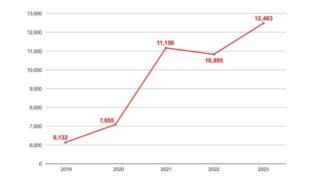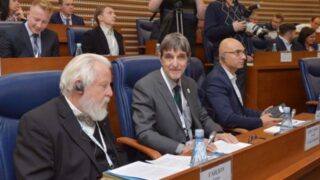When Confucianism is taught independently, courses and seminars are quickly prohibited and teachers go to jail.
by Qin Shoushan


Public security is carrying out a nationwide crackdown on a neo-Confucian movement called “Wulun Culture,” which also has devotees in other countries, including Japan.
Confucianism’ ambiguous role in present-day China has been discussed previously in Bitter Winter. It is not one of the five authorized religions, yet it is hailed by the CCP itself as part of Chinese traditional culture, and some attempts to revive it as a religion have been more or less tolerated.
Tolerance is precarious, however, and does not extend to new religious movements that combine Confucianism with other teachings. “Wulun” (五倫) is a word indicating the “five relationships” regarded as the pillars of social harmony: between ruler and minister, father and son, husband and wife, elder brother and younger brother, and between friends. They are also regarded as an essential Confucian teaching, although modern scholars have pointed out that it is unlikely that Confucius ever used the fivefold list.
According to the prosecutors who sent them to trial, the founder of Wulun Culture was Ye Zhenggong, a hotel manager from Guangdong who established the group in 2009, and later added Zhu Xiaping, also known as Shan Hai, an advertising agent from Jiangsu, as the group’s second-in-command. They taught the Chinese classics through seminars and courses that were advertised as reconnecting participants to the Confucian roots of Chinese culture, promoting both inner harmony and social harmony.
After some years of tolerance, Ye and Zhu were arrested and on November 5, 2021, the People’s Court of Binhu District, Wuxi city, Jiangsu province, sentenced them to a jail penalty of six years.
Confirming a new trend Bitter Winter has repeatedly noted, they were not sentenced for operating an illegal religious group labeled as a xie jiao but a “pyramid scheme.” When a spiritual movement asks a fee for seminars and courses, prosecutors find it easy to accuse it of “pyramid schemes” rather than of promoting illegal religion. It is also a way to avoid criticism that religious liberty has been violated, as prosecutors claim they are repressing financial fraud rather than spirituality.
The crackdown continues, as Wulun Culture had appointed local representatives in several provinces and cities, and they are now being arrested, together with some who just attended the seminars.
“This does not make sense, a participant in the Wulun Culture seminars told Bitter Winter, President Xi Jinping himself quotes the Classics and recommends to study them as part of the excellent traditional Chinese culture. This is what we do. Wulun Culture does not criticize the government and in fact teach authorities should be obeyed, which is the first principle of Wulun. Yes, we pay a fee for our courses but so do many who learn sports or dancing. The fees are not extravagant, and we are glad to pay.”









